Mastering Differential Diagnosis with the DSM-5 – MARGARET L. BLOOM (Audio CD)
Description
- Conduct a four-step diagnostic process to accurately identify and code a client’s diagnosis.
- Investigate common differential DSM-5 diagnoses for clients with anxiety, depressive, or abnormal cognitive symptoms.
- Differentiate between overlapping symptoms and comorbid conditions in order to provide the correct diagnosis.
- Analyze differential diagnoses for clients who present with disruptive behavior.
- Collect the specific information required for an accurate differential DSM-5 diagnosis of clients with a history of trauma.
- Utilize the DSM-5® severity tables, assessment tools, and coding notes to improve the accuracy of diagnosis and ICD-10 coding.
Outline:
Quick Review of Using the DSM-5 and ICD-10
- Diagnosis of Mental Disorders in the U.S.A.
- Use of Two Models, DSM-5 and ICD-10
- DSM-5 and ICD-10 Coding and Recording
- Web-based DSM-5 Resources
- Digital Updates
- DSM-5 Cross-Cutting Symptom Measures and Screening Tools
Four Step Diagnostic Method
- Case 1: Client with Multiple Problems
- Steps to a DSM-5 Diagnosis
- Step 1: Gathering Client Information and Behavior Sample
- Step 2: Identifying Key DSM-5 Symptom Clusters
- Step 3: Differential Diagnosis List
- Step 4: Initial DSM-5 Diagnosis
- Comorbidity considerations
Differential DSM-5 Diagnosis Challenges
- Clients with Experiences of Trauma or Psychosocial Stress
- Case 6: A Brave Firefighter
- Essential Information about the Client’s Trauma History
- Differential Diagnosis: Trauma-Related
- Differential Diagnosis: Does Not Meet Diagnostic Criteria Set for PTSD
- Frequent Comorbid Disorders
- Clients with Disruptive Behaviors
- Disruptive Behavior Symptoms
- Diagnostic Challenge: Case 5: Natalia is a Problem
- Substance-Related and Medical conditions associated with Disruptive Behaviors
- Differential Diagnosis by Patterns of Disruptive Behavior
- Defiant, Angry and Vindictive Impulsive and/or Antisocial
Differential DSM-5 Diagnosis for Common Presenting Symptoms
- Clients with Symptoms of Depression
- Key Symptoms of Depression and Dysphoria
- Substance-Related and Medical conditions with Depressive Symptoms
- Mental Disorders with Symptoms of Depression
- Diagnosis Challenge Case 2: A Sad, Overwhelmed Client
- Differentiating Disorders with Symptoms of Depression
- Frequent Comorbid Disorders
- Clients with Fear and Anxiety
- Key Symptom Patterns of Anxiety
- Substance-Related and Medical Conditions with Anxiety Symptoms
- Mental Disorders with Symptoms of Anxiety
- Diagnosis Challenge Case 3: Fearful and Worried Client
- Specific Differential Diagnoses
- Frequent Comorbid Disorders
- Clients with Abnormal or Impaired Cognition
- Diagnostic Challenge: Case 4: Is She Crazy or Clairvoyant?
- Sorting Patterns of Psychosis
- DSM-5 Mental Disorders with Psychosis Symptoms
- Substance-Related and Medical Conditions that Produce Cognitive Deficits
- Differential Diagnosis when Cognitive Deficits as a Key Symptom
NLP online course
So what is NLP?
NLP stands for Neuro-Linguistic Programming. Neuro refers to your neurology;
Linguistic refers to language; programming refers to how that neural language functions.
In other words, learning NLP is like learning the language of your own mind!
NLP is the study of excellent communication–both with yourself, and with others.
It was developed by modeling excellent communicators and therapists who got results with their clients.
NLP is a set of tools and techniques, but it is so much more than that.
It is an attitude and a methodology of knowing how to achieve your goals and get results
Preview Information:
Original Page
Add more Author:
Margaret (Peggy) L. Bloom, Ph.D., Professor Emerita, Counselor Education and Counseling Psychology, Marquette University, Milwaukee, Wisconsin is a licensed psychologist and NCC certified counselor. Dr. Bloom is nationally recognized for her knowledge and expertise in assessment, DSM diagnosis and counselor education. She is past chair and member of the board of directors of the Center for Credentialing & Education (NBCC), an elected fellow of the American Psychological Association (APA) and past-president of the Association for Counselor Education and Supervision (ACES). Beginning her career as a psychiatric nurse and earning graduate degrees in nursing, counseling, and a Ph.D. in counseling psychology, Peggy brings a unique interdisciplinary perspective to each seminar. She has published numerous journal articles and presented professional education seminars across the world on assessment, diagnosis and counselor education. In addition to her university positions, she maintained a private therapy practice for many years.
Speaker Disclosures:
Financial: Margaret Bloom is a Professor of Counselor Education and Counseling Psychology at Marquette University. She receives a speaking honorarium from PESI, Inc.
Nonfinancial: Margaret Bloom has no relevant nonfinancial relationship to disclose.
More Course: NLP – HYPNOSIS – PHILOSOPHY
Outstanding Course:The Art Of Creating Change – Experiential Systemic Therapy


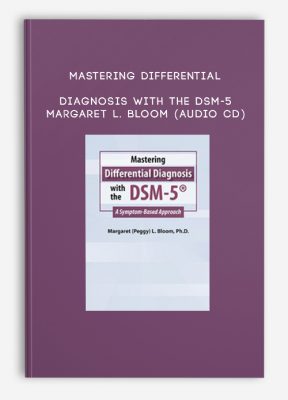
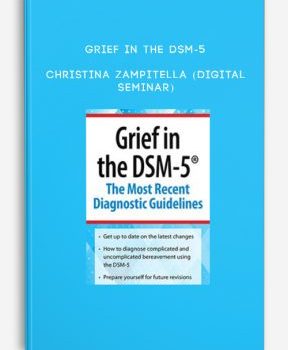
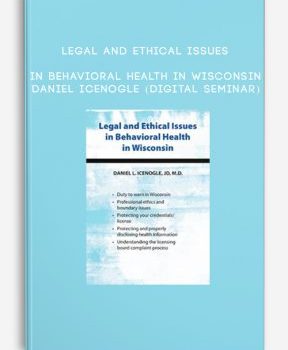
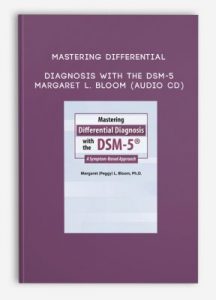
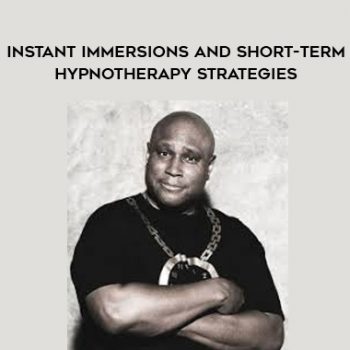







Lord –
This is Digital Download service, the course is available at Coursecui.com and Email download delivery.